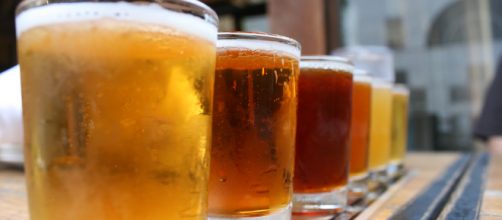Among many food facts there are some inconsistencies that lead many people astray in their eating habits. These are known as "food myths" and aren’t only misleading—they can inadvertently lead to some serious health risks if one adheres to them. What's worse is that most of these practices have already been integrated into people's daily lives.
It's time to separate fact from fiction and learn the real truth about the food that we eat. Here are 5 antiquated food myths that need to be thrown out.
5. Eggs contain ‘too much cholesterol’
One of the most widely believed food myths about the egg is that its yolk contains a high amount of cholesterol which can clog the arteries, resulting in a heart attack.
While it’s true that egg yolks do contain a considerable amount of cholesterol, it is of no consequence. The human body was engineered to lower its cholesterol levels in response to this. Hence, it's still safe to consume eggs.
4. All carbonated drinks are unhealthy
Most carbonated drinks can lead to some serious health problems thanks to certain ingredients that negatively impact the human body. Sodium benzoate can cause asthma. Fructose-rich corn syrup leads to diabetes and heart failure. Phosphoric acids can sculpt kidney stones and erode teeth—and the list goes on. However, there are now soda recipes that omit these harmful ingredients. Now, with this new knowledge, soda shoppers only need to look out for labels like "natural," "low-calorie," or even "zero calorie" in the drink aisle.
3. Eating carbs makes you fat
This is yet another popular misconception that has led many dieters astray. The problem with this one is that at one point in time it was backed up by real research, which led to some of the world's best-selling write-ups and fitness videos. Everyone thought that the intake of carbohydrates would lead to an increase in insulin, which in turn would lead to an increase in fat. Thus, the low-carb diet was born. However, the stone cold truth about carbs is that on their own they can't make anyone fat. There are many other factors involved and knowing them will help dieters better understand how they can still consume carbs regularly and not pack on the pounds.
2 . Milk increases mucus during a cold
Many still believe that it is ideal to avoid drinking milk during flu season because it will increase mucus levels. This is because dairy has a thickening effect on phlegm — the type of mucus that is found in the throat — and its newfound thickness can irritate the throat, making the cold more annoying. While this is true, that isn't proof that the phlegm itself has increased in scale. Hence, the food myth of dairy content increasing mucus production within the body is just that -- a myth.
1. Alcohol helps with sleep
This last myth is entirely wrong. In fact, it’s downright dangerous to believe this one. However, for those people who occasionally wet their whistles, it's not hard to imagine why this last myth might be taken as true science.
It is true — though unbelievable — that alcohol has some benefits regarding one's health. Still, when it comes to counting sheep, alcoholic beverages have no benefits. In fact it's pretty much the reverse, as alcohol has been shown to interfere with the sleep process. A better alternative would be to consume tart cherries before bed, as they contain a sleep-assisting hormone called melatonin. Best of all, cherries are nutritious.


